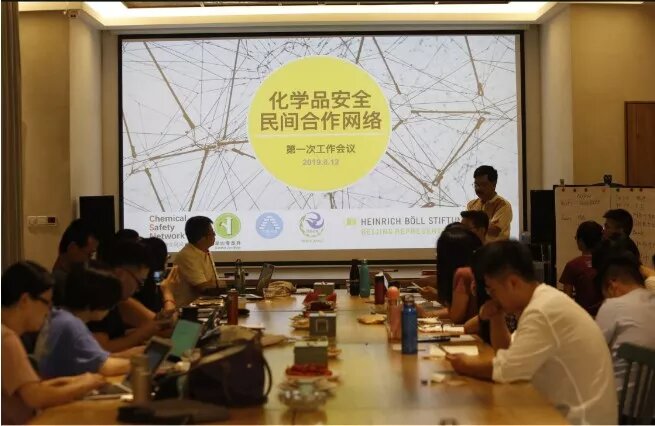
In recent years, chemical safety has become an important issue in the context of environment health and sustainable development. But there is a lack of awareness of toxic chemical pollution and how to properly manage chemical safety among the public, NGOs and across various sectors.
Supported by the Beijing Representative Office of the Heinrich Böll Stiftung (hbs), Shenzhen Zero Waste recently launched the Chemical Safety Network (化学品安全民间合作网络) consisting of a number of Chinese grassroots NGOs to carry out policy research and advocacy regarding chemical safety management in China.
In August 2019, Shenzhen Zero Waste organized the first work meeting of the network, which also included a training workshop (prepared in cooperation with Green Anhui) regarding chemical safety accident responses and contaminated site remediation. More than 30 people (representatives from local NGOs, volunteers and journalists) participated in the training and five technical experts were invited to present their findings and analysis on chemical safety management.
A policy working group of NGO representatives was established and, by the end of 2019, the policy working group had already produced two research reports: “Observations on the Actions of Chinese Civil Society Dedicated to International Conventions and Agreements on Chemical Safety” and “Observations on Mercury Compliance in China 2019.”
Shenzhen Zero Waste also submitted written comments regarding the revision of the National Hazardous Waste List and the Environment Management Measures of New Chemicals to the Ministry of Ecology and Environment.
In addition, Shenzhen Zero Waste led a few representatives of Chinese environmental NGOs to participate in several international meetings, such as Conference of Parties (COP) to the Basel, Rotterdam and Stockholm Conventions (BRS conventions) and the COP to the Minamata Convention on Mercury to follow the negotiations and engage with Chinese delegates regarding the negotiation process.